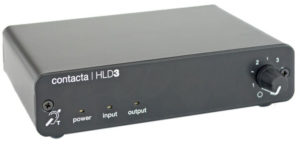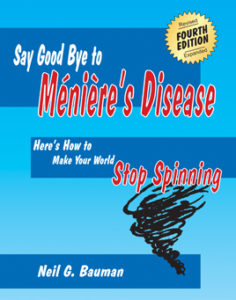by Neil Bauman, Ph.D.
A man asked:
What could be causing a rumbling, banging sort of sound in both my ears? It’s like hearing traffic from a distance, and a greater awareness of noise made by air conditioning systems?
I feel this super sensitivity is from hyperacusis. I don’t think it is tinnitus. I have had tinnitus for the past five years. My tinnitus was caused by stress and an episode of panic. It remained after that, and is a ringing sound, and occasionally a crackling sound.
I also have bilateral sensorineural hearing loss in the high frequencies.
My hyperacusis comes on periodically and goes away after a few months. More specifically, I have the following symptoms and find them very disturbing.
1. Awareness of heavy traffic (buses, trucks, vehicles) sounds heard from a long distance as rumbling, not noticed by others.
2. Awareness of the bass sounds from a music system, again from a long distance. I hear this as a throbbing, pulsating sound, again hardly noticed by others.
3. Awareness of the working of air conditioning systems with sound coming from the vents. I hear this as a low-level rumbling, throbbing sound, not at all noticed by other people in office.
This super sensitivity and acute hearing seems to indicate hyperacusis. Do you agree?
No. Hyperacusis is where you hear normal, everyday sounds as much too loud–a person talking is too loud. Cutlery clanking is too loud. The phone ringing is too loud, etc., etc. You are not hearing these normal sounds as too loud. Thus you do not have hyperacusis.
However, I do know what you are experiencing based on your very interesting set of symptoms.
You are not hearing real traffic sounds from a distance; not hearing real music; and not hearing real air conditioning sounds. You are really “hearing” phantom sounds, but phantom sounds that are so real to you that you cannot distinguish them from the real thing. This is why the people around you with normal hearing can’t hear them. In short, these sounds are all in your head.
What you are describing is not tinnitus, not hyperacusis, nor even hyperacute hearing. Rather, you are hearing some of the many sounds associated with Musical Ear Syndrome (MES).
People with MES almost always already have tinnitus and hearing loss such as you do. Furthermore, anxiety and/or stress is also commonly associated with MES.
Musical Ear Syndrome is fairly common, but seldom talked about. Just as you are doing, people try to find some other logical reason for “hearing” such sounds because they do not want to be thought crazy–which you’re not, by the way.
Your MES is more limited to lower-frequency rumbling sounds. Some people only hear beautiful music, but whatever sounds you hear, they are all just phantom sounds.
You don’t specifically say so, but I think you also sometimes can feel these sounds vibrating the floor/ground with their rumbling. Is that right?
You are not alone in what you are hearing (and feeling). You might be surprised to know that I “hear” the same things you do from time to time. So do many other people. For example, one sound I hear is a rumbling sound like a big truck idling outside the house. Another is hearing the furnace rumbling in the plenum under the floor. The strange thing is that these sounds are so real that I can actually “feel” them shaking the house.
The truth is, when I go to look, there is no truck anywhere around my house, nor is the furnace even running! When this happens, I am experiencing totally phantom sensations, just as you are.
Musical Ear syndrome is nothing to be worried about. You are definitely not going crazy because you hear these sounds, so you can put your mind at rest in this regard. These sounds are just symptoms of damage to your auditory system as evidenced by your hearing loss and tinnitus. Thus, when they occur, just ignore them–even though they seem so real.
You would do well to read my article entitled “Musical Ear Syndrome“. In addition, you can learn much more about MES in my book, “Phantom Voices, Ethereal Music & Other Spooky Sounds“. This book has brought peace of mind to many people with MES.


